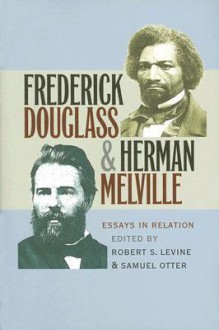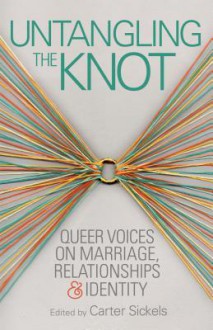 Suzana E.Flores is a clinical psychologist and she wrote Facehooked published by Reputation Books for trying to let us understand how much social medias in particular Facebook changed our daily life.
Suzana E.Flores is a clinical psychologist and she wrote Facehooked published by Reputation Books for trying to let us understand how much social medias in particular Facebook changed our daily life.All "hooked" by Facebook this one of Flores is a shocking and at traits sad, but always interesting reportage on the mind and behavior altered thanks to Facebook. While I was reading the book I thanked Lord we still have dial-up in our corner of the world. If sometimes I complain, I see now all the positive sides :-) ;-)
Surely Facebook gives addiction. Surely Facebook is able to reduce the connections between real people, like also other social appls as whatsup. Facebook is attractive, and the Big Brother of the world. More than other virtual communities.
Yes because Twitter is for business and for people who wants to spread important messages. In general more adapted for communication and media.
Facebook is a beautiful virtual land where to spend time without anymore...privacy.
It is a strange phenomenon this one: if in real life we wouldn't never, never communicate certain things, from the most common to the most sensitive ones to strangers, once online every kind of inhibition is over, and we are the protagonists of a never ending show where we post this world and the other, where we comment, where we share also sensitive topics sometimes with people we haven't never met and that surely will be incredibly good people but that they can be also potentially dangerous.
Facebook has also created for people passed away the possibility of keeping alive their FB page...
13 millions of people tells the author never changed the privacy of Facebook although it's important to keep Facebook protected under many aspects in particular if we added complete strangers on our community.
The author analyzes then the various behavior people starts to adopt once online. They want to be more beauty, more stunning because comparison with models or actors, or other people and their beautiful estates, children etc, can be cause of frustration.
So they tend to Photoshop their life.
What it means? They alter their life for trying to be more beauty, more attracting, more interesting, more...everything.
The result? In general it's a failure when we project a different ideas of us, but we are online and so who cares?
Facebook and people. It's like if every person is suffering of a sort of schizophrenic problem. In real life they're controlled. Once online they're different ones with maybe sometimes different identities, created for the most diversified purposes, stealing friendship, love, informations. They create a different self for loving maybe themselves more than the real self. Who knows?
It's a dangerous place under many aspects, as also can be potentially, good because you can post pictures of our life for our distant friends, correspondents and connections and where to share your thoughts.
It's not all negative, but it's important to try to prevent the negativity that there is in this powerful social network.
At first it was Myspace. It's in that case a place dedicated mainly at people of the showbiz, where you can find bands, actors, musicians, writers. It's a place for creative people with a different philosophy if compared to Facebook.
Then the arrival of Facebook. Facebook thanks to its scheme, a lot of games, an attractive interface, captured millions of people. People started to share all their thoughts, pictures, publicly, commenting, and sharing their life. There are active users who love to sharing with others their life in a daily base thanks also at the new deviceS like smart phones and tablets and a simplified access to the virtual community.
The risks? Being used by many kind of people that we add with simplicity although we don't know anything of them.
Plus, a powerful part of the book dedicated at the so-called Cyber-Native youngsters born and grown up with the internet, and these instruments and cyberbullysm.
As reported by the psychologist, youngster find less attracting to talk to real people than not playing or using their smart phone.
But same is for adults. There is not anymore peace during lunch or dinner. People, adults and teen-agers use constantly their smart phones.
Why this?
There is not a precise reason. After all in the past we brought a book at the doc's studio and while we were waiting we read. Now, same happens with smart phone but in a much more massive level and with more interactions. We didn't read during lunch or dinner. I did but I guess I was just a sporadic case.
Maybe it's a sort of refusal to speak and interact with people in that place, it can be a bar, it can be a cafe a social place. The smart phone the best instrument for finding refuge in the "other world" in the virtual life, and where to escape and find some peace, if virtual life means that. No stress. Or just, googling also while we lunch or we have dinner time gives us the possibility of searching while we talk with the rest of family of certain informations immediately. A writer, a place, a pic.
For certain people the net is a place where to cause messes of various genres and there are various kind of profiles portrayed by the psychologist and their modality for approaching people, "ruining" their own consideration for a little while.
Most of the people interviewed, some clients of the author focused on their massive problematic derived by the use and abuse of Facebook. Big dependence, great discussions, break up with their real partner, because partner thought that their girlfriends or wives talked with other men online or vice versa.
There was a story of a girl and boy. They chatted for 7 years, she Photoshopped her pics because she didn't like her body and when she met this boy deluded by the encounter.
Virtual life creates myths and different expectations. Maybe because there is not real life to live. Virtual life is more light.
You can send as a gift a virtual heart, a virtual kiss, a virtual dish of pasta, a virtual donuts without hug, without cooking or baking thanks to various game applications. You save time and you think that you are interested in the other human beings. Surely is true but... How much can be true without also a physical interaction?
There are also big misunderstanding.
A man caused a mess, because he saw his girlfriend close to a man. It was in a FB pic. He didn't know who this smiling man was and thinking maybe he could be a new lover of his girlfriend, he broke her PC, was violent with her, till he discovered that the guy was Mitt Romney, a republican candidate the lady was supporting.
Funny and comical isn't it true? Pity that there was violence in this episode.
A virtual community must be a place where we start to wisely interact with other ones and trying to carefully add new people.
It's all up to us, if we want to share thoughts, feelings, with others, or just we want to use e-mail for it.
Surely Facebook gives a stage, a place where to perform who we are or who we are not and this is what, mainly makes the difference. Each of us wants 15 minutes of fame and Facebook can gives us more than 15 minutes. An entire virtual life.
Wonderful book, because you will learn a lot about the big potentialities and damages caused by Facebook and our so-called virtual life.
Thanks to netgalley for this book!

 Log in with Facebook
Log in with Facebook 









